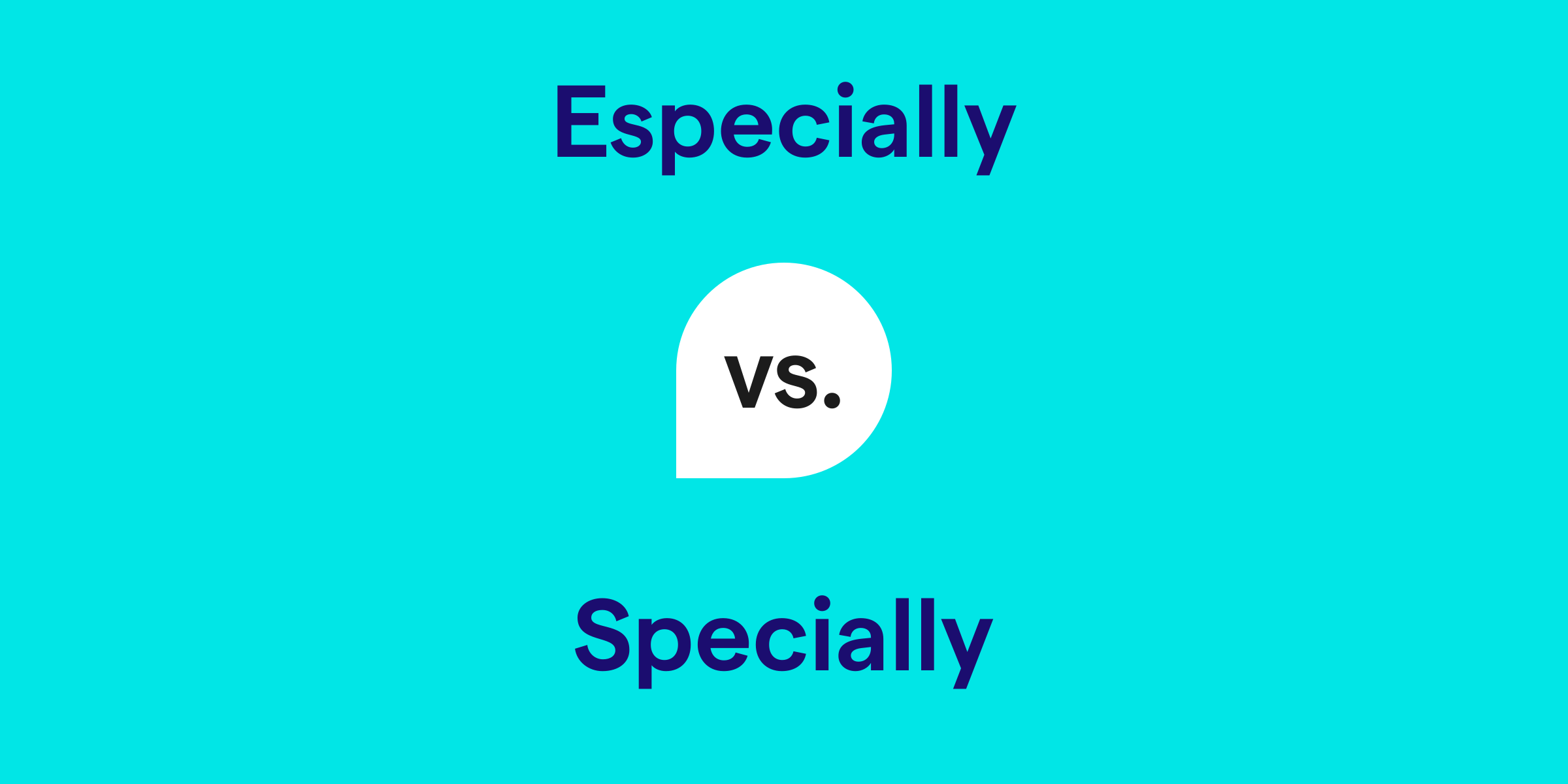Especially vs. Specially: What's the Difference?
While often interchangeably used, especially and specially have slightly different connotations and applications. Especially refers to 'particularly' or 'above all,' highlighting a singular importance or focus among others. On the contrary, specially denotes 'for a special purpose,' or 'specifically designed or organized,' implying customization or adaptation for a certain use.

How do you use the word especially in a sentence?
The word especially should be used when you want to signify something or someone that stands out among others in importance, uniqueness, or value. It acts as an adverb that emphasizes a particular characteristic, item, or person in a group and is synonymous with 'particularly' or 'notably.'
Examples of especially in a sentence
- She loves all flowers but is especially fond of roses.
- The speech was especially moving and left the audience in awe.
- I packed some snacks for the trip, especially since I know you get hungry often.
How do you use the word specially in a sentence?
Specially is used when referring to something made or performed for a specific purpose, often implying customization or exclusivity. The adverb is applied to situations where an item or action is tailored to fit a particular need or preference.
Examples of specially in a sentence
- This dress was specially tailored to match your measurements.
- The chef prepared a meal specially for our anniversary, taking into account our dietary restrictions.
- They built a ramp specially designed to assist individuals with mobility issues.
Especially and specially definition, parts of speech, and pronunciation
Especially definition:
Especially (adverb): Used to indicate something is more significant compared to others and to point out one thing among others.
Especially parts of speech:
Especially pronunciation:
Phonetic Spelling: /ɪˈspɛʃli/.
Specially definition:
Specially (adverb): For a particular purpose, more than is usual or necessary, or in a special manner.
Specially parts of speech:
Specially pronunciation:
Phonetic Spelling: /ˈspɛʃəli/.
Especially (adverb): Used to indicate something is more significant compared to others and to point out one thing among others.
Especially parts of speech:
- Adverb: The song, especially the chorus, was incredibly catchy.
Especially pronunciation:
Phonetic Spelling: /ɪˈspɛʃli/.
Specially definition:
Specially (adverb): For a particular purpose, more than is usual or necessary, or in a special manner.
Specially parts of speech:
- Adverb: They were specially invited to the exclusive event.
Specially pronunciation:
Phonetic Spelling: /ˈspɛʃəli/.
Especially vs. specially in a nutshell
To sum up, especially is best used when singling out one element with exceptional focus from a group, while specially applies to cases of individual tailoring or a specific customization. Remembering this will help you choose the correct adverb for different contexts and convey your thoughts with precision. While there is some overlap, and the words might sometimes be used interchangeably in casual conversation, appreciating their distinct nuances will enhance your linguistic accuracy.
Get AI Writing Assistance Wherever You Type
Make sure your vocabulary is on point and every punctuation mark is in the right place, no matter where you’re working. Grammarly works across more than 1 million websites and apps so you can improve your writing without copying, pasting, or breaking focus.

More Commonly Confused Words
Interest piqued? Pore (not pour) over other commonly confused words to help your writing reach peak (not peek) performance.